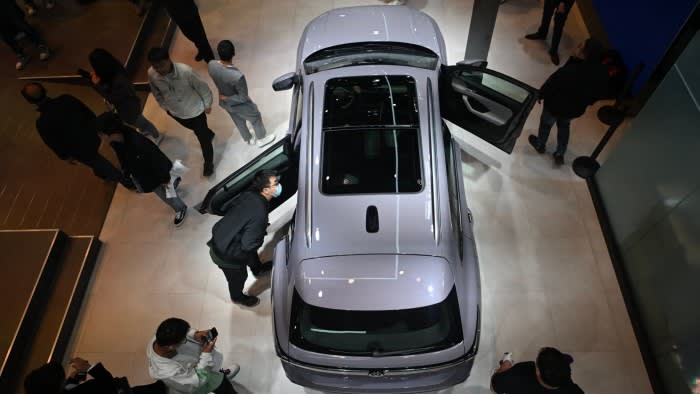VW and Stellantis struggle with falling demand in China and Europe

Stay informed with free updates
Simply sign up to the Automobiles myFT Digest — delivered directly to your inbox.
Europe’s two largest carmakers suffered a slowdown in the first three months of this year as lower demand in China and at home buffeted the industry.
At Volkswagen, group profits in the three months to March 31 fell by a fifth on the same period last year to €4.6bn, largely because of falling resale values and supply problems at Audi, one of its most profitable brands.
Lower resale values are a problem for car companies such as VW that provide the majority of customer financing. If used cars sell for less than expected, they are forced to take writedowns on these loans.
Stellantis, which owns Peugeot and Jeep, posted a bigger than expected fall in revenues to €41.7bn in the first quarter, driven by a weaker performance in its European heartlands.
Daimler-owned Mercedes-Benz, which also reported results on Tuesday, had an almost 30 per cent fall in earnings before interest and tax to €3.9bn, as both sales volumes and margins fell.
Mercedes-Benz said sales of new cars fell 8 per cent on last year to 463,000, led by falls in Asia. Analysts at Citi said they were “increasingly . . . worried about the [Mercedes] Cars operations”, citing weaker demand for luxury products and from Chinese consumers.
Jefferies analyst Philippe Houchois wrote that it had been a “downbeat start” to the year for VW.
After several years where profits have been boosted by supply chain problems driving up prices, the industry is facing issues from a collapse in the resale value of electric vehicles — because of weaker than expected demand, problems such as outdated software and a price war fuelled by Tesla and China — and higher interest rates that have put off consumers.
VW and Mercedes are also more exposed to problems in their biggest market of China, where consumer demand has weakened and there is increasingly fierce competition from domestic carmakers.
VW reported a lower than expected operating margin because of discounting across its models and internal supply chain problems that slowed the production of the Audi V6 and V8 engines.
The group had warned of a “slow start to the year” given the preparations to reduce production of older models and focus on 30 new models across its brands, almost all EVs.
It reiterated its full-year outlook of “up to 5 per cent growth” on its 2023 sales figure of €322.3bn, with chief financial officer Arno Antlitz highlighting cost-saving measures and the rollout of the new models.
Stellantis chief financial officer Natalie Knight said the quarter had been “choppy” as it prepared to launch new models, particularly electric cars, later in the year. Net revenues in the three months to March were €41.7bn, down 12 per cent from a year earlier after it ran down inventory that it had built up last year. That compared with analyst average expectations of €42.3bn, according to a Refinitiv poll.
Shares in VW and Mercedes were down about 3 per cent in morning trading. Stellantis fell about 2 per cent.



